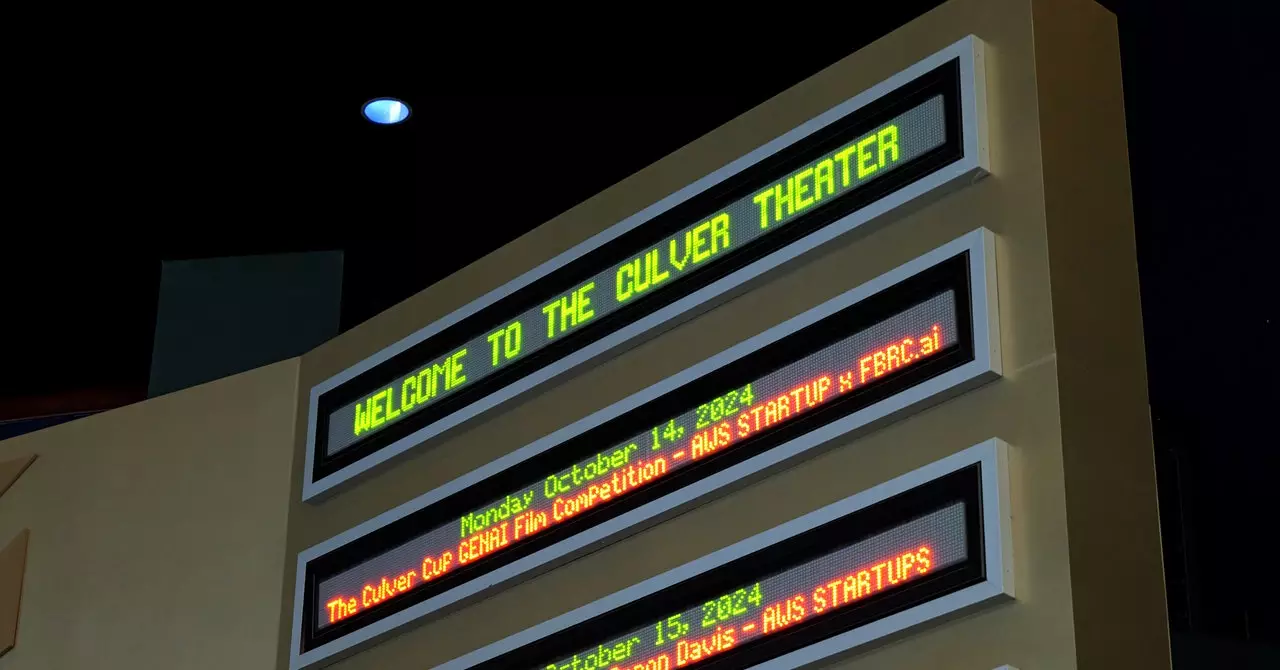The world of filmmaking is undergoing a seismic shift as technology evolves, particularly with the advent of generative AI. At its core, storytelling remains unchanged, and understanding the foundational elements of narrative art is crucial for any filmmaker navigating these new tools. Filmmakers like Meta Puppet stress that emotional storytelling cannot be compromised, regardless of technological advancements. His recent short film, “Mnemonade,” exemplifies this principle by exploring deep themes such as memory and loss through vivid storytelling, underscoring that the essence of narrative lies in emotional connection. Without the heart of the story, even the most advanced technology will fall flat.
Maddie Hong, who recently competed with Meta Puppet in the Culver Cup finals, highlights the mixed feelings that permeate Hollywood regarding AI. While there is an undeniable potential for innovation, the fear of legal ramifications—such as copyright infringement—remains a significant concern. Hollywood’s focus on polished image continuity is not merely cosmetic; it reflects an industry under intense pressure to meet high standards across a plethora of platforms. The stakes are steep because if any production slips through the cracks due to flawed AI-generated content, the financial repercussions could be significant.
Despite these challenges, innovators like Amit Jain, co-founder of Luma, champion the idea that generative AI could revolutionize traditional filmmaking by introducing flexibility in budget and narrative diversity. In an era dominated by sequels and reboots, the argument for creating new stories becomes paramount. As the industry grapples with embracing original concepts, AI could serve as a viable alternative to perpetuating the familiar cinematic themes that audiences have grown accustomed to.
Though some industry leaders believe that generative AI could unleash a wave of creativity and job opportunities, research indicates otherwise. A survey found that an overwhelming 75 percent of entertainment executives observed job eliminations or reductions due to AI integration. This troubling statistic raises questions about the industry’s capacity to create new roles that could effectively replace those lost. While tools designed to streamline workflows promise to alleviate tedious tasks for visual effects artists, they also bring ethical and financial issues to the forefront of discussions about filmmaking’s future.
Hong’s insights resonate here; while she acknowledges the potential financial advantages of AI in reducing production costs, she remains cautious about the overall workforce implications. The concern lies in a future landscape where creativity becomes automated at the expense of human talent, leading to a homogenized film experience devoid of individual artistry.
For many, including Meta Puppet, the debate isn’t simply about which technology can produce the best results, but about the skill required to master these new tools. He likens generative AI in filmmaking to a piano: a resource every filmmaker can access, yet not everyone can play like a maestro. Crafting extraordinary narratives with AI assistance requires a multifaceted skill set, blending technical prowess with creative vision. As the cinematic landscape shifts, it becomes essential for filmmakers to adapt by wearing multiple hats — an endeavor that could be both a challenge and an opportunity.
While the allure of low-budget, highly imaginative projects becomes more feasible, the ongoing question remains: What will be the long-term effects on the industry? Will filmmakers, empowered by AI, be able to contend against studios entrenched in tradition? Or will a reluctance to embrace change stifle creativity and innovation?
As the entertainment industry stands on the cusp of a transformative era, the blend of emotional storytelling and technological advancement will define its trajectory. The conversations surrounding generative AI are not purely about technology; they are fundamentally about the human experience. Filmmakers must strive to navigate these uncharted waters thoughtfully, ensuring that the art of storytelling remains the focal point amidst technological evolution. The challenge is to harness the potential of AI while safeguarding the heart and soul of narrative filmmaking, ultimately leading to richer and more fulfilling creative ventures.


Leave a Reply